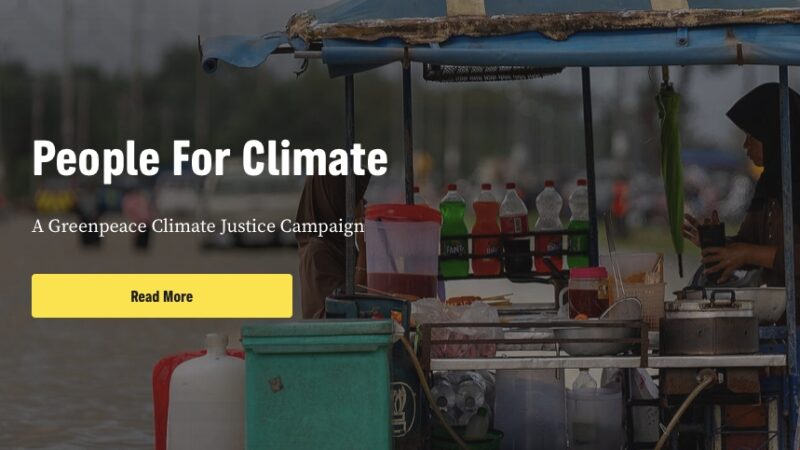Can sustainable food production improve our consumption habits?
Sustainable food production is an important concept for understanding how to improve our consumption habits. This article will discuss the benefits, challenges, and implications of sustainable food production, as well as strategies for implementing it. We will also look at how to measure the impact of sustainable food production on our consumption habits. By understanding the importance of sustainable food production, we can make positive changes in our consumption habits that will benefit both the environment and the economy.
Table of Contents
Benefits of Sustainable Food Production
Sustainable food production is a process of growing and distributing food in an environmentally conscious and responsible manner. It is an important step in protecting the planet and ensuring a healthy and safe food supply for future generations. There are many benefits to sustainable food production, from improving the environment to reducing health costs.

For starters, sustainable food production reduces the amount of waste that is produced. By using more efficient growing and harvesting techniques, less water and soil are wasted, and fewer chemicals and pollutants are released into the environment. This, in turn, reduces air and water pollution and helps to protect the health of the planet.
Sustainable food production also helps to improve the quality of food available. Through the use of better farming practices, the quality of food produced is improved and the nutritional value is increased. This results in healthier and fresher food for consumers.
Finally, sustainable food production helps to reduce the cost of food. By using less energy and resources, and producing food more efficiently, the cost of food is reduced. This is beneficial not only to consumers who can purchase food at a lower cost but also to farmers who can spend less money on inputs and still make a profit.
Overall, sustainable food production is a win-win situation for everyone involved. Not only does it reduce the amount of waste produced and improve the quality of food available, but it also helps to reduce the cost of food. By taking steps towards sustainable food production, we can help to create a healthier and more sustainable food supply for future generations.
Challenges to Sustainable Food Production
The world is facing significant challenges when it comes to sustainable food production. Growing populations and the effects of climate change are creating a complex set of problems that our current food production systems may not be able to handle. Issues such as dwindling natural resources, water scarcity, soil degradation, and the need for environmental protection must all be addressed if we are to ensure a secure and sustainable food system. Furthermore, the need to reduce food waste and reduce greenhouse gas emissions from agriculture must be addressed if we are to create a sustainable food system for the future. It is a difficult but necessary challenge and one that must be addressed if we are to ensure a safe and healthy food supply for the coming generations.
Changing Consumption Habits
As the world population continues to grow, our consumption habits need to change to ensure sustainable food production. We must find ways to reduce our reliance on industrialized food production and move towards more sustainable methods. This means avoiding processed foods, reducing our consumption of animal products, and increasing our intake of plant-based foods. We must also ensure that we buy responsibly, only purchasing locally sourced, ethically produced goods that are respectful of the environment. By making small changes to our diets, we can help to ensure a more sustainable future for the planet and our future generations.
Supporting Sustainable Food Production
Food production is vital in providing a safe, nutritious, and affordable source of food for society. Sustainable food production is a way to ensure the continued availability of food while also protecting the environment, conserving natural resources, and providing equitable access to food. There are a variety of strategies and techniques to ensure sustainable food production, such as using renewable energy sources, practising soil conservation, and preserving biodiversity. Additionally, the introduction of new technologies, such as precision agriculture, can help increase the efficiency of food production without sacrificing the environment. Governments and organizations around the world are working to support sustainable food production and ensure that food is available to all.
Environmental Implications
The environmental implications of sustainable food production are becoming increasingly important as the effects of climate change become more evident. Sustainable food production methods focus on the use of renewable resources, reducing the amount of energy and materials used, and conserving natural resources for the future. These methods include organic farming, agroforestry, integrated pest management, no-till farming, cover crops, and the use of renewable energy sources.
By implementing sustainable farming practices, the impacts of climate change can be mitigated, and the environment can be protected for future generations. Additionally, sustainable food production can reduce water consumption, reduce waste from pesticide and fertilizer runoff, and improve soil health. By investing in sustainable food production, we can create a sustainable food system that is good for the environment, the economy, and human health.
Economic Implications of Sustainable Food Production
Sustainable food production has a significant impact on the economy. It lowers costs associated with production, increases access to nutritious food, and reduces the environmental impact of food production. By optimizing land use and reducing dependence on chemical inputs, sustainable food production can lead to improved labour productivity, higher yields, and improved market access. Additionally, sustainable food production helps to create jobs, stimulate local economies, and reduce greenhouse gas emissions.
The availability of locally produced, sustainably produced food can also increase consumer demand, helping to boost both the local and global economy. While the economic benefits of sustainable food production are clear, it is important to consider the potential economic implications of this type of production, including the cost of implementing sustainable practices, the impact on the global food market, and the need for financial incentives to encourage sustainable agricultural practices.
Social Implications of Sustainable Food Production
The social implications of sustainable food production are vast and far-reaching. Sustainable food production is an environmentally responsible approach to food production that is not only beneficial for the environment but also for people and communities. Sustainable food production methods focus on efficient land, water, and energy use, improved soil quality, conservation of natural resources, and minimized waste.
These methods have the potential to reduce poverty and hunger, improve food security, and create jobs and economic opportunities. Additionally, sustainable food production can help to reduce the environmental impact of food production, improve local wildlife, and promote biodiversity. As more and more people become aware of the benefits of sustainable food production, the social implications will likely continue to grow.
Measuring the Impact
The impact of sustainable food production is an increasingly important topic of discussion in the global food industry. Sustainable food production is an approach to food production and consumption that focuses on reducing environmental impacts while providing access to healthy, safe, and nutritious food. This approach ensures that food production does not contribute to the depletion of natural resources or the degradation of the environment while maintaining the economic viability of the food industry.
To measure the impact of sustainable food production, various metrics must be considered, such as energy use, water use, waste management, biodiversity conservation, and economic sustainability. Additionally, the social and economic implications of sustainable food production must also be taken into account. By measuring the impact of sustainable food production, businesses and governments can ensure that their efforts to produce and consume food sustainably are having positive effects on the environment, food security, and the economy.
Strategies for Implementing Sustainable Food Production
Food production is a critical part of human existence, but it can also have a detrimental effect on the environment. Implementing sustainable practices in food production is important to reduce the long-term impacts of traditional food production. Strategies for implementing sustainable food production include reducing the use of synthetic fertilizers and pesticides, increasing soil health by using organic methods, using renewable energy in the production process, and promoting diversification in production. By implementing these strategies, food production can be more sustainable and help to protect the environment for future generations.
In conclusion, sustainable food production has the potential to significantly improve our consumption habits. By addressing the environmental, economic, and social implications of sustainable food production, we can create a more sustainable and equitable food system. There are many potential benefits to sustainable food production, including reducing food waste, increasing access to fresh, nutritious foods, and reducing our carbon footprint. However, it is important to recognize the challenges that need to be addressed and the resources required to successfully implement sustainable food production. Through careful planning, research, and implementation, we can create a more sustainable and equitable food system that will positively impact our consumption habits.



